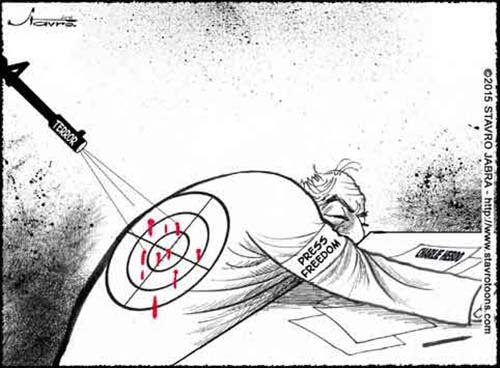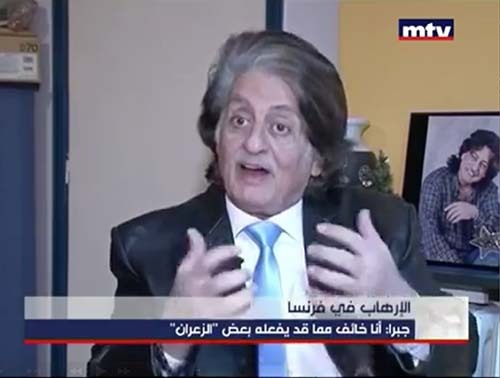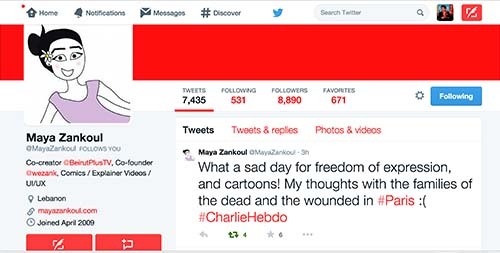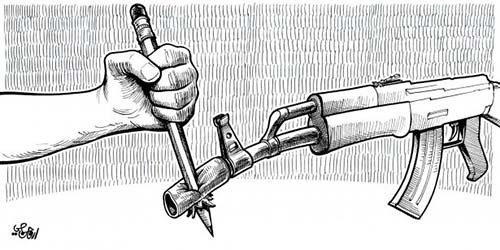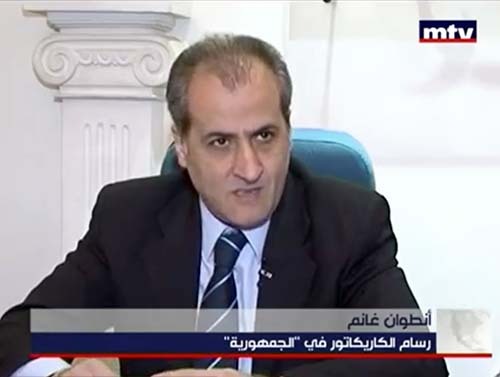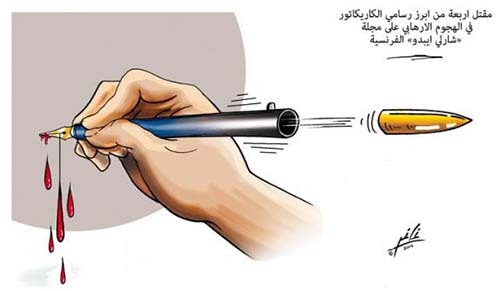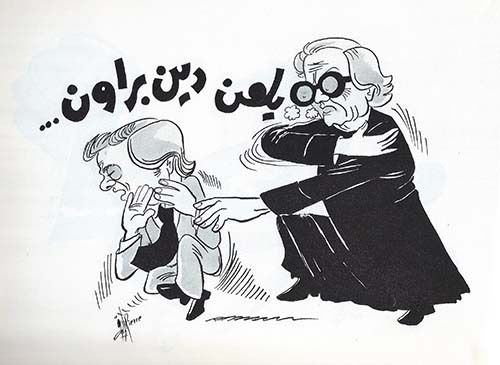Lebanese caricaturists felt solidarity with French colleagues targeted in a terrorist attack on the satirical publication Charlie Hebdo this week, but admitted they're hamstrung by threats against them, terrorism, sectarianism, and political instability in their country.
"When it happened, I couldn't believe it, I cried, they're all my friends," said noted Lebanese caricaturist Stavro Jabra.
The French publication has been known to provoke adherents of different religions, most particularly Muslims, as well as politicians, intellectuals, artists, and anyone whose ideas its editorial staff found fair game, through scathing caricatures, comments and articles.
Jabra added that his pen and illustrations would be harsher than usual as a result and that his desire to defend liberties had become furiously stronger, notably since he knew the four main victims of the Paris massacre.
He drew a cartoonist with a "press freedom" armband and a bull's eye on his back gunned down by an assailant.
"Of course we're afraid. We live in a country, in a region, gripped with fear. Our leaders love caricatures, but we're afraid of (in parentheses) jerks," Jabra told MTV Lebanon News.
Cartoonist/illustrator Maya Zankoul, whose work is also noted for its sarcasm, parody and satire, but isn't as hard-hitting as Lebanon's newspaper editorial cartoonists, was equally shocked by the news.
"What a sad day for freedom of expression, and cartoons! My thoughts with the families of the dead and the wounded in #Paris ☹ #CharlieHebdo," she tweeted.
Armand Homsi's caricature of a pencil jabbed into a machine gun's barrel in the daily Annahar was forceful and poignant.
The paper's former publisher, Gebran Tueni, and key columnist Samir Kassir, who rocked the political boat, were both blown up in their cars in 2005.
"We consider the four illustrators martyrs of art and martyrs of journalism," Antoine Ghanem, caricaturist for the daily Al Joumhouria, said. "Our pen will replace them but not in the same fashion."
He explained that freedom of expression was absolute in France, which was why Charlie Hebdo was targeted by extremists, whereas the Lebanese enjoyed freedom of expression that, unfortunately, had limitations.
"In our media, if journalists or caricaturists tackle sensitive issues, they're exposed to untold dangers, so imagine what it's like for caricaturists who make a living out of satire," Ghanem added.
He drew a pen with blood dripping from the tip and a bullet shot out of a gun barrel on the opposite end with a caption that read: "The murder of four of the most prominent caricaturists in the terrorist attack on the French magazine Charlie Hebdo."
Ghanem said caricaturists in Lebanon couldn't criticize without being threatened by religious extremists or others, given the volatile domestic and regional situation.
Elie Saliba, a caricaturist in the satirical magazine Addabour (The Hornet), which has had run-ins with Lebanese authorities over its prickly content, told Annahar he usually stays clear of religion.
"That's none of my business, I have no problem with any religion, and let everyone worship whomever he wants, and when I decide to dabble in religion, I will have brought it (disaster) on myself," he said.
Religion is a particularly touchy subject in Lebanon with its 18 officially recognized sects, representing Muslims, Christians, Druze, and Jews. Insulting religion or someone's faith in the media is a definite no-no and may lead to dire consequences.
In other Arab countries it may result in jail, torture, public lashing, or death.
But the late granddaddy of caricaturists Pierre Sadek got away with it during Lebanon's 1975-90 Civil War.
He was so offended when US special envoy Dean Brown reportedly suggested Lebanese Christians should emigrate to the West and leave their homeland to a Muslim majority that he lashed out in a biting caricature.
In a clever play on words, Sadek drew former president Camille Chamoun in a priest's cassock slapping a cowing Brown with a caption that read "Yil'an Dean Brown."
Translation: "Curse Brown's religion."
Lebanon's president has always been a Christian and the word "dean" in Arabic means religion.

